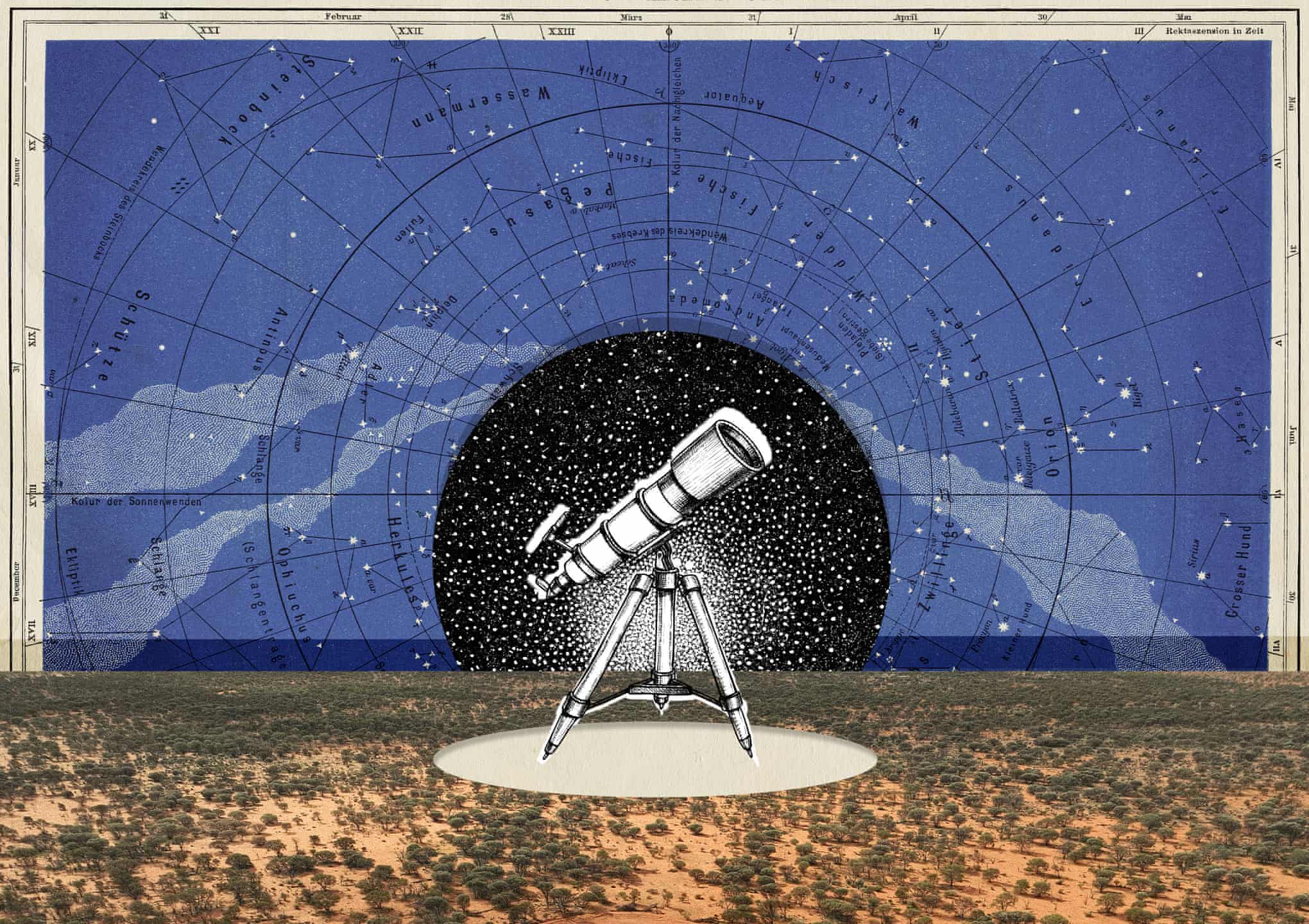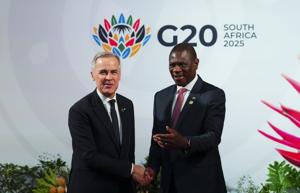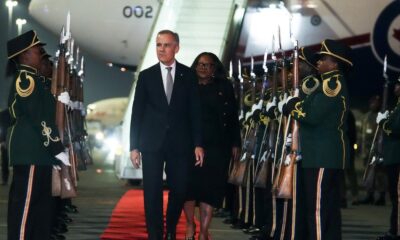Science
Telescope Project in Australia Faces Misconduct Allegations

A significant international effort to explore the universe is under scrutiny as allegations of financial misconduct emerge. The Square Kilometre Array Observatory (SKAO), a massive initiative involving over 130,000 antennae in outback Western Australia, is facing serious claims regarding its financial management. The project, which includes a sister telescope in South Africa, aims to map the universe’s first billion years and has a budget of approximately €2 billion (A$3.6 billion).
While the SKAO is celebrated as one of the most ambitious scientific projects of the 21st century, recent reports have revealed troubling issues related to its funding and administration. According to the Guardian, the organization managing contributions from 16 member states has been accused of financial misconduct, which it has denied.
Funding for the Australian segment of the SKAO has increased significantly since its inception. The Australian government’s financial commitment rose by more than A$150 million from 2020 to 2024, surpassing the initial budget. This increase has been attributed to funding shortfalls within the project. In March 2025, as the telescope captured its first images using only 1% of its operational capacity, a former senior employee filed a “protected disclosure” report calling for an investigation into the organization’s financial practices.
The SKAO operates as an intergovernmental body, which means it is not subject to national laws or regulatory oversight in Australia. Consequently, the whistleblower directed their complaint to the SKAO’s global chair, Filippo Maria Zerbi, an Italian astrophysicist. In an email from May 2025, Zerbi acknowledged the investigation into the various allegations and stated that “all necessary actions” would be taken in response to the concerns raised.
The whistleblower also contacted the Financial Reporting Council in the UK, where the SKAO is headquartered. They alleged that the organization’s structure created a “regulatory blind spot” that enabled the “systematic deception of 16 sovereign governments.” Established by an international treaty in 2019, the SKAO has special legal status, exempting it from standard legal processes and taxes.
In terms of financial contributions, the Australian government initially pledged A$387 million over a decade, with A$141 million earmarked for the first four years. However, recent budget statements indicate that the actual expenditure from 2021 to 2025 has reached A$475 million. A spokesperson for the Department of Industry, Science and Resources stated that this additional spending reflects Australia’s contributions to the SKAO and other commitments, including investments in local communities.
The inquiry also highlighted an alarming loss of at least £12 million (A$25.1 million) due to investments in money market funds, one of which reportedly lost 45% of its value. Documents reviewed by the Guardian suggest that the SKAO’s investment portfolio may have suffered significant impairments, raising concerns about the management of member state funds.
In response to the allegations, a spokesperson for the SKAO maintained that no capital losses had occurred in their investments. They emphasized that money market funds were chosen for their low-risk nature and liquidity, asserting that any reductions in investment balances were due to withdrawals for operational costs.
Additionally, the whistleblower’s report claims mismanagement of procurement budgets has led to delays and changes in project scope. A notable example is the project’s reliance on temporary diesel generators for power, as the permanent power supply has yet to be built. While the SKAO’s website states that a solar energy system will ultimately power the site, no such facility is currently operational, leading to over A$1 million in annual diesel expenses.
The SKAO has announced plans for a long-term solar-based power solution, with expectations set for completion by late 2028. In the interim, they will continue using diesel generators until the proposed renewable energy infrastructure is in place.
The European Commission has also sought repayment of €3.4 million from the SKAO for a €5 million grant intended for infrastructure development. This request followed a review that deemed a portion of the claimed costs ineligible. The SKAO spokesperson indicated that this situation was resolved amicably with the Commission.
As the investigation unfolds, the organization acknowledges the necessity for ongoing assessments of the project’s scope and budget. An internal update suggests that extensions to the project schedule and a potential “budget gap” are under review. The spokesperson reiterated that the SKAO Council, which includes representatives from member states, oversees these changes, emphasizing that they are driven by programmatic needs rather than financial constraints.
The challenges facing the Square Kilometre Array Observatory highlight the complexities of managing a project of this magnitude, particularly when navigating international cooperation and funding. As investigations continue, the future of this ambitious scientific endeavor remains closely watched.
-

 Politics4 weeks ago
Politics4 weeks agoSecwepemc First Nation Seeks Aboriginal Title Over Kamloops Area
-

 World5 months ago
World5 months agoScientists Unearth Ancient Antarctic Ice to Unlock Climate Secrets
-

 Entertainment5 months ago
Entertainment5 months agoTrump and McCormick to Announce $70 Billion Energy Investments
-

 Science5 months ago
Science5 months agoFour Astronauts Return to Earth After International Space Station Mission
-

 Lifestyle5 months ago
Lifestyle5 months agoTransLink Launches Food Truck Program to Boost Revenue in Vancouver
-

 Technology3 months ago
Technology3 months agoApple Notes Enhances Functionality with Markdown Support in macOS 26
-

 Lifestyle3 months ago
Lifestyle3 months agoManitoba’s Burger Champion Shines Again Amid Dining Innovations
-

 Top Stories2 months ago
Top Stories2 months agoUrgent Update: Fatal Crash on Highway 99 Claims Life of Pitt Meadows Man
-

 Politics4 months ago
Politics4 months agoUkrainian Tennis Star Elina Svitolina Faces Death Threats Online
-

 Sports5 months ago
Sports5 months agoSearch Underway for Missing Hunter Amid Hokkaido Bear Emergency
-

 Politics5 months ago
Politics5 months agoCarney Engages First Nations Leaders at Development Law Summit
-

 Technology5 months ago
Technology5 months agoFrosthaven Launches Early Access on July 31, 2025





















